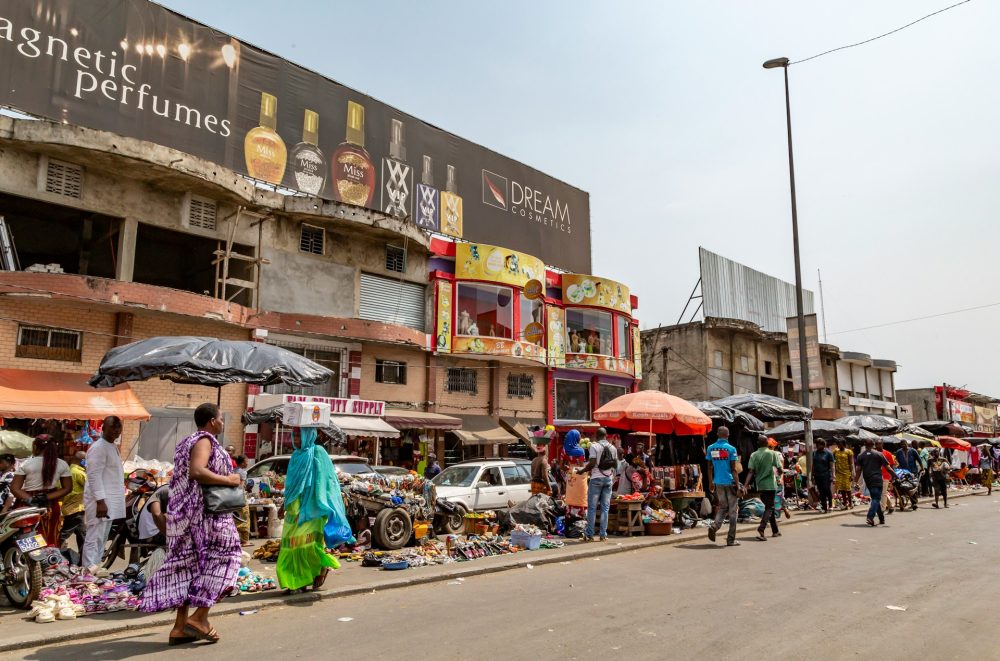Africa
The state of Africa’s financial markets
Africa has been making notable changes in its financial markets to encourage both local and foreign investments.

A strong financial market plays a significant role in encouraging local and foreign investment. An economy with a high number of listed firms in the stock exchange, financial inclusion, market agreements, policy initiatives and a variety of products stands a better chance of attracting more investors than an economy that has fewer.
In a bid to create a favorable trading atmosphere, attract more investors and generate more revenue, Africa has begun making notable reforms in its financial markets to achieve this and the world is starting to take notice of it. There are, however, a bunch of limitations that still bar Africa from reaching its full potential.
Different economies have registered varying degrees of success in developing their financial markets. When it comes to ranking best performed African countries, South Africa tops the list with 92 percent, followed by Mauritius at 66 percent, Botswana at 65 percent, Namibia at 62 percent and Kenya at 59 percent.
The potential of African financial markets
There are a good number of opportunities in Africa that if taken seriously, can speed up the growth of financial markets. To start with, Africa has a rapidly growing population which currently stands 1.3 billion according to Worldometers report, 2019. This is equivalent to 16.64 percent of the total world population. The population is estimated to reach 2.2 billion by 2050, surpassing China’s by 2025.
This holds an undeniable economic advantage for Africa, which seems to be gathering everything that is needed to take off. Its population is mostly composed of the youth who are a great asset for the economy. They are a rich source of labor and innovative ideas necessary for transforming the available opportunities to profit.
Africa’s listings and liquidity are increasing, this is a sign that its financial market is starting to grow. South Africa, the home of Africa’s largest stock exchange took the top spot in both 2017 and 2018 Absa Africa Financial Markets Index. The total value of its listed equities is more than $100bn or $1.1trillion.
In Kenya, the financial sector has been growing at an accelerated rate, the percentage of people not included in any financial service have drastically dropped over the years. Thanks to its highly successful mobile money services that are used by over 71 percent of adults and mobile banking services such as M-Shwari, Equitel, and KCB M-pesa.
Access to any form of formal financial service has increased from 27 percent to over 75 percent. While the percentage of people excluded from any form of financial service has dropped from over 40 percent to 17 percent between 2006 and 2016.
Kenya’s financial inclusion has attracted both local and foreign investors who have since greatly benefitted. For instance, most Kenyan banks have invested in the mobile banking system, and the result has been improved customer service hence higher returns. A good example is KCB bank which uses KCB-Mpesa to deliver mobile money services to its customers.
Through KCB-Mpesa, the bank has been able to lend an average of KSh 660 million in loans on a monthly basis. On the foreign exchange market, Kenya has the second highest interbank foreign exchange turnover of $34 billion after South Africa.
Botswana takes pride in its stable fiscal and macroeconomic environment. According to a 2016 report by World Bank, it has a GDP per capita of $6,750 making it an Upper Middle-Income Country. Its high GDP signifies a stable economy and therefore, investors are assured of making profits if they invest in the country. Besides, it has a market capitalization greater than 100 percent of GDP along South Africa and Ghana.
An increasing number of embassies in Africa is another important point to note. Between 2010 and 2016, more than 320 embassies were opened in Africa. This has encouraged global investments as movement between African countries and access to business opportunities have been made easier.
Challenges facing African financial markets

While Africa has made brilliant moves in transforming its financial market, individual countries still have a lot to do to open up more opportunities. For instance, Ethiopia and Mozambique need to up their game in developing their stock exchange, as this is essential in raising capital through listings. This is one of the key areas that investors are looking at.
Ethiopia has no securities exchange, this denies its citizens and domestic institutions an opportunity to participate in the economy. This makes the economy prone to inefficiencies and lack of transparency, something that investors can’t deal with. No investor wants to put their money where there is no transparency and efficiency.
It’s however not all that bad in Ethiopia, the country has made good progress in improving its infrastructures such as roads, rail, electricity, building projects and more is yet to come. This is a plus for Ethiopia, good Infrastructure is not something to be overlooked as there are many economies that are still suffering from poor infrastructure.
Generally, Africa’s economy still needs trillions of money to completely transform its infrastructure. For instance, to achieve universal energy access by 2025, at least $55 billion needs to be raised annually in domestic and international capital to be able to achieve this. An extra $50 billion is also needed to fund other infrastructure projects.
The continent also suffers from barriers such as low liquidity, low listings, lack of product diversity, excessive controls and administrative procedures in the foreign exchange market.
Africa needs to up its game and breaks these barriers in order to give way for investment opportunities. It should make reforms in its financial markets by; improving financial inclusion, securities exchange, listings, and market capitalization.
It should also revise its policies and market regulations to ensure that they are both protective and investor friendly.
On the other hand, Africa also deserves to be applauded for the efforts it is making.
A few decades ago, quick access to finances or loans was something that was never possible in Africa. One had to wait for a long time to be served, but now this process is almost instant, thanks to financial inclusion.
The stock markets have also greatly evolved; South Africa is a true example of this. Mauritius, Botswana, Namibia, and Kenya are also doing pretty well. With such market conditions, investors have the opportunity to generate good revenue.

-

 Cannabis6 days ago
Cannabis6 days agoWhen a Cutting Becomes a Cannabis Plant: Court Clarifies Germany’s Three-Plant Rule
-

 Africa2 weeks ago
Africa2 weeks agoIvory Coast Development Plan 2026–2030: Investment, Growth, and Strategic Reforms
-

 Africa2 days ago
Africa2 days agoMASI Surge Exposes Market Blind Spot: The SAMIR Freeze and Hidden Risks
-

 Crypto1 week ago
Crypto1 week agoBitcoin Rebounds Above $70K as Crypto Markets Show Fragile Signs of Recovery

























